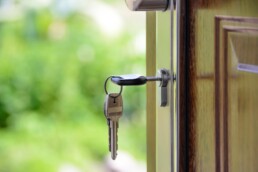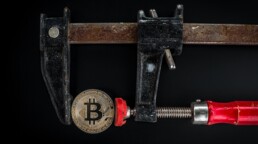Security Guide for Newbies - Save the user
SECURITY.
You have 10 bitcoins.
Have you read them?
Bang!
Well now they're gone.
You screwed up, you were careless, you lost everything.
Because your security sucks. You didn't think long term and you were lazy. Laziness is for sloths, not for you.
Security and managing the security of any wallets in the crypto world is critical.
In this world there are no banks that can save you or help you, or people paid to help you if you lose passwords, private keys or if you are robbed.
Security is your duty and obligation. If you want to hold crypto, even in small amounts, you must follow some rules.
Remember that security and all the work you are doing here is to secure your coin. Security is not comfortable, is more like riding a motorcycle in the summer heat with a leather suit, that is not comfortable. But it is safe, and a comfortable service is unsafe. And we want SAFETY.
Let's go through an important, but not completely exhaustive, list of things you must do and not do.
We know that some things may be exaggerated, but you never know.
THINGS TO DO
Starting from scratch:
Back up of any private keys of each wallet. Private keys are also known as SEED.
The SEED is the set of words, which can be 12 or 24, that allows the wallet to be recovered if the wallet is lost or updated, depending on how the software works.
Always remember that whoever owns the seed, owns the coins.
Back up exchange access.
Always make a copy of the exchange access passwords and the e-mails that are used.
Of course protect the email password as well.
Back up the 2FAs.
Copy the QRs code of the 2FAs, make sure that you have a copy of any QR. Without 2FA you will not be able to access the exchanges.
Back up your phone for 2FAs.
If you have an old smartphone that you no longer use, you can use it to act as a Backup phone
Hide everything.
Needless to say, you can do as many back ups as you want, but if you leave something lying around, maybe written on some papers with the title "bitcoin wallet" and someone comes by and this person knows what to do....
And then remember where you hide your back up and what you put there.
Keep wallets updated.
Updates are done to improve services and to plug the holes that every system invariably has. Keeping wallets updated is a good and right thing.
Choose the right wallet.
Best to use one wallet per coin or per network type, example ERC20 or BSC
Multicoin and multi-network wallets can have larger security holes given the use of "exotic" coins that very often have only initial development and over time become insecure at the software level.
Use open source software.
Communities that make use of open source software in blockchain are communities that aspire to continuously improve the product. Best to rely on these people.
Check addresses after a copy - paste
There is a hacker attack that is called “Clipboard attack”. Your device has been infected with malware that recognizes the addresses of some coins and replaces the address you entered with another. So if you are withdrawing coins from an exchange, it replaces the address on your wallet with the one decided by the hacker when you go to copy paste. Always check that the address is correct. Dont be lazy.
Bookmark exchanges.
By bookmarking exchange addresses, beware of pishing attacks and clone websites created just to steal data from you. By using links in favorites you will be more sure that you are on the correct address.
Generate wallets only when you are alone.
You never know who is watching around you. Generating a bitcoin wallet in the middle of a square full of people is not very safe.
Know the Scams.
Follow our guide to learn how scams work and thus, not to get scammed yourself.
Maintain anonymity as much as possible.
There are crypto investor communities that are interesting to join, especially thanks to telegram. But we never know who is behind that screen . Be careful and study the situation before participating.
In case of robbery.
If they are unfortunately after your crypto wallets because you were unlucky or stupid, prepare in advance a wallet that is expendable with a low amount of money. But congruous with your big mouth. Idiot.
THINGS NOT TO DO
Lose back ups.
If you lose the papers or flash drives, you have lost access to the wallets.
If you misplace passwords or worse, misplace private keys, you can say goodbye to your coins.
This is the most frequent way to lose possession of coins, far more frequent than any scam.
Be careful where you write seeds
Do not write seed with a pencil but with a pen. Do not kick with a pen; a malicious person could retrieve your seed.
Then if use paper as temporary, destroy the paper with a shredder.
Do not use markers that could write part or all of the seed on underlying papers.
Do not use Clouds.
Do not put passwords, login information or seeds into any Cloud, even if you consider them hyper secure. Clouds can be hacked and this data leaked.
Pay attention to how you use your "notepad."
Do not lend your cell phone if you have a wallet in it.
Pure logic.
No photos with cell phones.
Do not take password or seed photos with your cell phone. Your cell phone may be hacked, you may forget to delete the photo, and you may lose your cell phone.
Buy a hardware wallet.
Do not have hardware wallet sent to your home.
Do not have hardware wallets sent to your home address, but use other addresses that cannot be traced back to you. Security flaws and data theft at Ledger have left all of the company's customer information at the mercy of hackers. It doesn't take long to realize that your data can be bought and used to harm you.
Don't leave clues.
Never leave behind papers, notes, or signs that might indicate your possession of cryptocurrency.
If you leave seed and password sheets around, your cleaning lady might betray you or sell you to someone. Or your wife might throw away some papers with random words written on.
Don't go around telling people that you have cryptocurrencies or how many you have. Stay in the shadows.
If someone should ask, answer that it is a subject you have studied but you have never owned anything, that you have never invested any money in them. There are people around who could harm you, who could threaten your family and your loved ones.
Do you really want to risk having your daughter killed only to fool around at the Club with those 4 assholes of your friends?
Safety rules for any exchange.
Always remember that the moment you signed up, you are vulnerable to be hacked.
You may have your password stolen. So use a password that is complex but different from the other services you usually use. A password that is the same as other sites can be a problem -
es Binance vs. small book seller. Understand that the investments in security between the two services are not comparable. It should be added that your email is easily traceable and this would give possible access to your funds if you have not protected yourself with another layer of protection such as 2FA
For this reason, always activate 2FA. But do not activate it from the email, Thats a bad choice.
Remember that the biggest flaw in any service is you, with your unintentionally careless behaviors.
We suggest making an email for exchanges, using privacy-oriented services such as Protonmail's.
For password creation you can think of something long consisting of several words yourself or using a program such as a password manager. Remember that a password created by the pc with numbers and letters is impossible to remember, while a password created with a phrase or set of words that make sense to you can be remembered more easily. We prefer a passphrase.
Again, for each exchange use a different password.
In case you use a password manager, you only have to remember the passphrase to access the service.
Never abandon coin on exchanges.
Because exchanges are a risk, coins that remain on the 'exchange can be stolen in the event of an attack. Do not leave coin to do anything on any exchange.
Coins can be left on some exchanges to create a passive income. But this is discussed in another article.
Another important point is that only coins should be left on exchanges to trade and that you are willing to lose in case of a security breach.
Trading: the mistakes you will make. For Sure.
Trading is not a simple and straightforward activity. It is a long journey, made up of study, sweat, monetary blood spent every time a mistake is made. It is a solitary journey that not only involves our bank account, but also our most hidden inner part, awakening fears and invalidating our psyche. Every mistake you make is a source of pain but no one becomes a capable trader without going through this path.
Today we are going to see some of the mistakes you will surely make as a newbie trader.
The first mistake you may run into involves doing too much or too little paper trading. Here we need to understand how you are made at the level of psyche. Paper trading is a training system for traders that consists of creating sales and purchases on paper, without real money, to train and understand how it works. However, paper trading lacks a fundamental component which is anxiety about the use of real money. On a paper trading account we can also have 100 thousand or more euros invested, but not being real money, your behavior will be easily swashbuckling and arrogant. zeroing the trading account will not be a problem.
Zeroing the account doing paper trading is not actually a real problem, but if you analyze what and why it happened. The best thing to do would be to switch as soon as possible to trading with real money, with small amounts, to begin to get used to managing the tension of maintaining the position on the market and managing the emotional waves of seeing the value of the asset purchased increase or decrease. . More paper trading could serve those who are braver and more gamblers, while a more timid and calm person could leave earlier given his less aggressive disposition.
Another mistake that arises from the first is to use a too big size of the market position. Because there will be a time when we will be so confident in ourselves and our analysis, that we will put half of our portfolio on that stock that we are sure will go up.
And then after a short time to see it collapse sending us into total panic. At which we will have to decide whether to face the pain of losing money and defeating our beliefs or to hold the position ignoring what would be right to do, transforming a short-term trade into a long-term investment, without having any idea when it will be changing trend.
This error also brings with it the anxiety of having a lot of our money invested in a single position, anxiety that will be present even if our position is positive. In fact, anxiety will most likely get us out of the position much sooner than we should, making us bring home a meager income.
The second mistake is related to the third mistake, which is not having a trading plan. Having a trading plan means having an idea of what our goals are for earning and safeguarding the portfolio. It seems obvious but it is not, and above all having a plan helps us to discipline ourselves on the markets.
In fact, planning protects us from another mistake, which is over trading or exaggerating by taking positions. In fact, it can happen that after a series of particularly good and profitable trades our ego pushes us to risk more and more, in the belief that we are very good and we cannot make mistakes. If all the trades have been positive before, these will certainly be positive too, bringing us one step closer to wealth and happiness. On the contrary, in fact our ego is one of the biggest enemies we have, as it deflects our vision and perception of the market by endangering our account.
Being emotional is a mistake that we will always pay dearly for. Being cold and focused means seeing things as they are and not as we would like them to be. Emotion is the enemy of victory especially when it leads to greed. There are situations in which being satisfied is the right choice, in fact the emotionality will mean that we will still be inside the trade that we will have to sell, losing all the profits and going at a loss.
The emotionality leads to what is called FOMO, fear of missing an opportunity. We think it is an unmissable opportunity and we throw ourselves headlong without thinking about it and without analyzing, only to end up making a mistake that cost us part if not all of the trading account. The FOMO is that illogical and illusory push that deceives us and leads us into deception. Think about when prices are high and people who know nothing about it enter the market, buying pushed by the mass media. Think about when your hairdresser tells you to absolutely buy that specific action and that he was good at just taking it. Nothing against hairdressers, some know even more than me, but if your hairdresser knows nothing and tells you so, this is a great example of FOMO.
When you are filled with emotion, you don't have to sell or buy. You have to study, update, train but not trade. Emotions equate to losses.
You have to follow your take profit and stop loss. If you have put them on and you are not totally stupid there will be a reason, and if you have put them without a sense you are perhaps a beginner and it can even be there. Know them and not follow them, this is being stupid.
And being stupid is always waste of money and a loss of money is pain.
Save your bitcoins - Security Rules
Safety first. With crypto, this is imperative.
Lets start from a very important premise. Bitcoin is currently considered a safe system.
The weak point in the use of bitcoin is the user.
the weak point is you.
But this big problem can be solved with careful planning and habits every time you use bitcoin.
Losing your bitcoins means losing access to the wallets where they are stored or sending them to people or exchanges from which we can no longer recover them. Another example of a loss could be considered the theft of the wallet by a criminal.
Always remember that there is no way to delete a transaction on the blockchain, and those Bitcoins sent cannot come back. There is no regulatory autorithy that will protect you from malicious people and get your bitcoins back. Is only your responsibility to protect yourself
But what are the steps to protect yourself.
First of all, a wallet must be created, and this wallet will have a private key. This private key must be keep secret and you must back it up
If you don't know what kind of wallet to open, check out our article on the various types of wallets.
To access this wallet, create a login password. Back up your login password.
Remember that you are not in control of wallets on exchanges, so do not forget funds on exchange unless you are trading. Exchanges are like banks, they own your money but control is in their hands.
For large quantities of bitcoins, it is imperative to use hardware wallets
Make a copy of the wallet's private key and password on a USB stick. Encrypt this key and hide it in a safe place. You can choose to have multiple keys with multiple passwords for the different wallets you are going to create. Obviously you don't have to forget the password otherwise you will lose everything.
Create one or more strong passwords,it means that you have to create password with at least 8 characters, better if there are more. With a mixture of lowercase and uppercase letters, numbers and special characters.
Do not use passwords from other accounts such as email.
A good idea for a password is a sentence made with one or more grammatical errors, or by substituting letters with numbers such as 5 instead of S
the best possible password, however, is a string of characters and numbers and random symbols but it is difficult if not impossible to remember
You can also use a password manager to generate and track passwords
Some hardware wallets require you to use Pin codes, always prefer 8-digit ones over 4-digit ones and don't use dates of birth.
When accessing exchanges, always try to use 2-factor authentication and not SMS. You can check out our 2-Factor Authentication video to learn more. SMS is not recommended because it could be intercepted by a hacker and used to defraud you or empty your wallet.
If you need to access an exchange or your wallet, it is absolutely not recommended to use a public wi fi. Wait until you have a secure line or use a VPN. Much better never to use public wifi.
You have to pay attention to the sites you use and check the emails that come to you. Phising sites and emails are a real threat.
check that you have a secure SSL connection via HTTPS. There are many scams with cloned sites and domains that look the same but that if carefully observed have very small discrepancies from the originals
Another precaution is not to click on the links within the unsecured emails. We can receive emails from the exchanges where we are registered but we must check carefully and if the email seems suspicious, throw it. Obviously never open attachments from these emails. Remember that an exchange email should contain your name, not just Sir or Dear Customer. Another test is to check the real origin of the email.
remember that transactions cannot be canceled or returned.
Precisely for this reason when you send money always check the sending address twice and never write the address manually,
because you will face always complicated address, and if you make a mistake and send money to an address that has nothing to do with it and you never get those coin back.
The security of your Bitcoins is entirely up to you.





